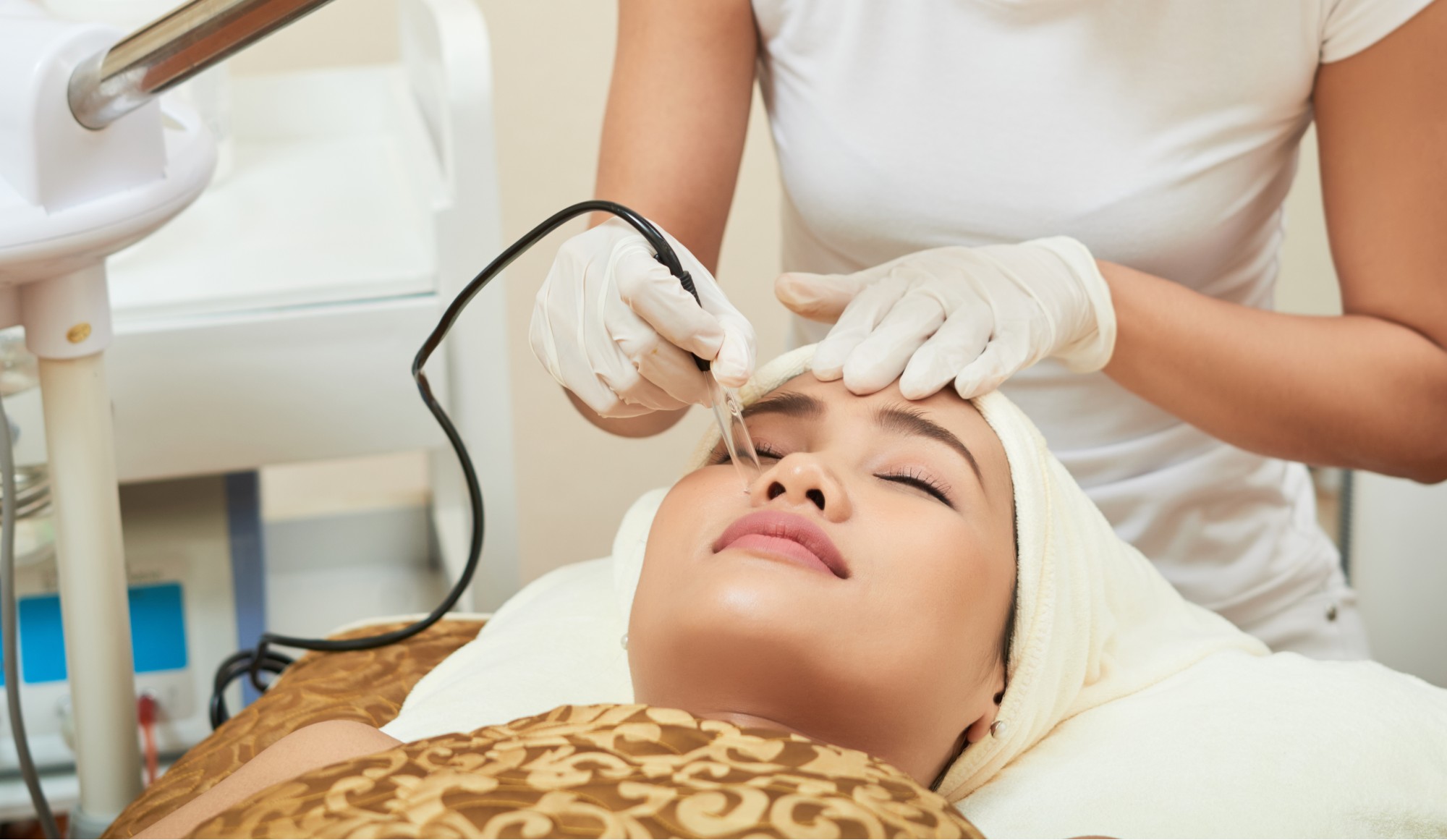
Medically Reviewed by Dr. Lee Hwee Chyen
MBBS MRCP (UK) FAMS (Dermatology)

Laser therapy is a minimally invasive treatment that uses concentrated light to address various skin conditions. Specific wavelengths of light are targeted at the skin, ensuring precision and efficacy in treating superficial skin problems and deeper tissue concerns. Here are five skin conditions that you can treat with the help of laser therapy.
For acne scars, treatments vary based on the scar type. Fractional laser therapy creates micro-wounds in the skin. This stimulates collagen production and skin remodelling, helping to smooth out atrophic boxcar scars and non-tethering rolling scars.
Ablative lasers, like CO2 and Erbium:YAG, remove the top layer of skin, making them effective for deeper scars like ice-pick and boxcar scars. Non-ablative lasers, which are less invasive, can be used for milder scarring, enhancing skin texture and tone without significant downtime.
Rosacea, a chronic inflammatory skin condition, often presents with facial redness, flushing, and visible blood vessels. It can be treated using laser therapy, which targets and collapses dilated blood vessels to reduce redness, improve overall skin tone and decrease any discomfort. The best laser treatment for rosacea depends on the specific symptoms and subtype of the condition.
For persistent redness and visible blood vessels (telangiectasia), treatments like pulsed-dye laser (PDL) and intense pulsed light (IPL) help target the blood vessels, reducing redness and visibility.
Cases of rosacea with thicker skin or enlarged pores are better suited for treatment with ablative lasers that remove layers of skin, like CO2 or Erbium:YAG lasers. These treatments help not only in reducing redness but also in managing skin thickening and inflammation associated with certain types of rosacea.
To treat irregular skin, short, concentrated beams of light are precisely delivered, removing the skin layer by layer. This process, known as laser skin resurfacing, stimulates the body’s natural collagen production and regenerates new, smoother skin.
Ablative lasers (like CO2 and Erbium lasers) are used for deeper wrinkles, while non-ablative lasers, which are less invasive, heat the skin without removing the top layer, suitable for finer lines. Laser therapy improves skin texture and tone, giving a more youthful appearance while providing long-lasting results.
Laser therapy can treat various forms of hyperpigmentation such as age spots, sunspots, and melasma. The lasers target melanin, the pigment causing hyperpigmentation, and break it down without harming the surrounding skin, resulting in a reduction of dark spots and even skin tone.
Pigment lasers such as picosecond lasers, Q-Switched Nd:YAG and Alexandrite lasers can be used to target various types of unwanted hyperpigmentation. The type of laser depends on the underlying diagnosis and the patient’s skin type. Multiple sessions are usually required, depending on the indication.
Various birthmarks, especially those with a vascular component, like port-wine stains and hemangiomas, can be treated by laser therapy. The laser targets abnormal blood vessels or pigment cells, depending on the type of birthmark, reducing their appearance.
For port-wine stains, vascular lasers such as pulsed dye lasers can significantly lighten the mark, sometimes removing it entirely. Laser treatment can also accelerate the regression of hemangiomas, especially those affecting function or causing other complications.
Laser therapy using pigment lasers can also treat pigmented birthmarks like café-au-lait spots and Mongolian spots by targeting melanin, the pigment in these birthmarks, and breaking it down to fade their appearance.
Addressing common misconceptions about acne can help you adopt the best practices for an acne-free and healthy skin environment. Consult a dermatologist if you have any concerns about your skin condition and for medication to treat severe acne.
Acne is a skin condition that can be exacerbated by certain cosmetic ingredients. Understanding these ingredients can help prevent acne flare-ups and maintaining healthy skin. Read on to learn more.
A skin biopsy involves the surgical removal of a small sample of skin tissue for microscopic examination, allowing for the identification of diseases that may not be discernible through visual inspection alone. Read on to learn more.